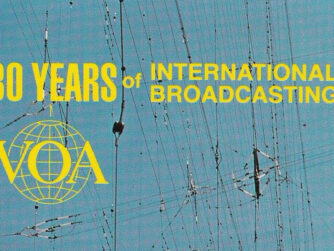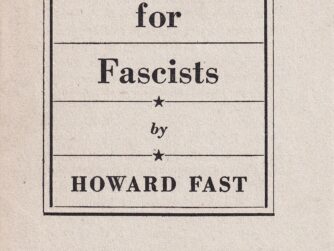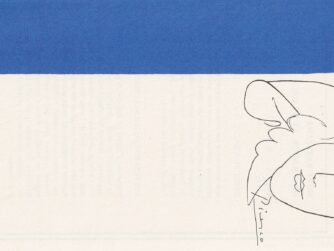A study issued on October 24, 2018 by the Asia Society and the Hoover Institution revealed that annual meetings took place between the management of the Voice of America (VOA) Mandarin Service and the Chinese Embassy personnel in Washington, DC to discuss VOA programs to China.
According to a report of the Working Group on Chinese Influence Activities in the United States prepared by the Hoover Institution at Stanford University and the Center on US-China Relations at Asia Society in New York, “starting in the first decade of the 2000s, the Chinese embassy in Washington, DC, and the leadership of VOA’s Mandarin service began an annual meeting to allow embassy officials to voice their opinions about VOA’s content.”
The Hoover Institution and Asia Society report also said that “VOA personalities have hosted events at the embassy,” and one of VOA’s TV editors “even publicly pledged his allegiance to China at an embassy event.” The report cited “interview with VOA staff” as a source of this information.
During that period, several presidentially-appointed members of the bipartisan Broadcasting Board of Governors (BBG), which had an oversight and management role over VOA [in 2018, the BBG was renamed the U.S. Agency for Global Media (USAGM)] were known to have corporate business interests in China, and also in Russia. All former BBG Board members doing corporate business in China and Russia were believed to be Democrats.
The 2018 Hoover Institution and Asia Society report continued:
…some VOA staffers interviewed for this report believe that China’s outreach campaign has succeeded in pushing the VOA Mandarin service away from programs with direct relevance to China toward programming that seeks instead to highlight American everyday life or teach American-style English to Chinese listeners.”
“It is not surprising,” the report noted.
The Hoover Institution and Asia Society report also revealed staff security problems at the U.S. federal government agency which runs the Voice of America.
According to the report, among VOA journalists working there who “had been contacted by representatives from [China’s] state security who have impressed upon them the necessity to change how they have reported on China,” some VOA Mandarin Service broadcasters have not informed the office of security at the Broadcasting Board of Governors about these approaches.
The report also said that “In some cases, those affected have contacted the security department at the Broadcasting Board of Governors.”
But the report added that “In other cases, worried about potential Chinese retribution against family members still in China, they have not.”
The Hoover Institution and Asia Society report also mentioned in an extensive footnote the senior management’s decision in April 2017 to shorten the VOA Mandarin Service’s live interview with Chinese anti-communist businessman whistleblower Guo Wengui. The service chief, Dr. Sasha Gong, who conducted the interview, was later dismissed by VOA Director Amanda Bennett, who accused Gong of violating journalistic standards and not promptly ending the interview when ordered to do so by senior managers, including Bennett. Gong disputed these charges but was fired. She was one of the “VOA Mandarin Five” group or journalists disciplined or fired by the management for allegedly not acting promptly to shorten the interview. Gong later reached a settlement agreement with the agency.
The Hoover Institution and Asia Society report noted that prior to the interview with Guo Wengui, “the Chinese government warned VOA’s correspondent in Beijing of serious repercussions should the interview air.” According to the report, “Chinese embassy officials also contacted VOA in Washington threatening retribution.”
The report also provided additional details on how the Chinese authorities try to intimidate VOA and Radio Free Asia (RFA) staffers.
Chinese authorities have used both a charm offensive and tougher tactics to deal with both VOA and Radio Free Asia. China’s retaliation goes far beyond trying to block their transmissions into China. Security officials from the PRC government have been involved in a campaign of intimidation against some VOA and RFA staffers and their family members. In early 2018, relatives of some Uighur reporters on Radio Free Asia were detained by Chinese authorities in Xinjiang province. VOA’s Mandarin service has approximately one hundred employees. Although many of them write under pseudonyms, it appears that Chinese state security knows who they are. Five Chinese staff members interviewed for this report said that while visiting family in China they had been contacted by representatives from state security who have impressed upon them the necessity to change how they have reported on China. In one case, a young woman who is in the United States on a journalist visa and who does not yet have American citizenship was threatened with imprisonment during a visit last year to China if she did not reveal the names of her editors. She did so.
The Hoover Institution and Asia Society report also noted that “the content of Radio Free Asia remains far more hard-hitting than its counterpart, VOA.”
Since her [Sasha Gong’s] dismissal, VOA’s Mandarin service has resumed a pattern of avoiding stories that could be perceived to be too tough on China, according to several staffers. For example, blogs written by dissidents such as Cao Yaxue, who runs the human rights–related http://chinachange.org site, have been removed from the VOA website. Several prominent Chinese commentators are no longer on VOA’s lineup of analysts. Many staffers now describe VOA’s content as neither pro- nor anti-China. The emphasis, the staffers observed, is on travel, culture and language, programming the likes of which Chinese viewers can access equally well on CGTN or China’s internet. By contrast, the content of Radio Free Asia remains far more hard-hitting than its counterpart, VOA.
The report was described as “a collaborative effort among a group of American scholars and policy practitioners who have spent long careers studying and engaging China, Asia more broadly, and a wide variety of political systems around the world.” Thirty-three internationally known scholars participated in discussions over the past year and a half at the Hoover Institution, Sunnylands, and George Washington University as part of the preparation of the Hoover Institution and Asia Society report.
Some Voice of America journalists working for other services have accepted non-monetary recognition awards from foreign governments.
Among many scandals plaguing the Voice of America during the tenure of the Obama administration appointees, VOA director Amanda Bennett and BBG and later USAGM CEO John Lansing, it was also reported by U.S. and international media that several VOA Hausa Service broadcasters were suspended or fired by the management for allegedly accepting money from a Nigerian government official after he was interviewed for the Voice of America.
Senior VOA executives have met with high-level officials of foreign governments, including some who are accused of corruption by independent media in their home countries. According to critics, this tends to promote a culture of tolerance for VOA journalists personally engaging with officials of repressive or corrupt foreign governments in social settings, including participation in events arranged specifically for VOA managers and journalists by foreign officials. All contacts between VOA staffers and communist regimes during the Cold War were strictly regulated and monitored and some interactions were specifically forbidden.









